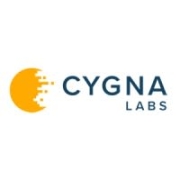DDI (DNS-DHCP-IPAM) streamlines the management of IP addresses, DNS services, and DHCP configurations, making network administration more effective and efficient.
To learn more, read our
DDI Buyer's Guide (Updated: March 2025).
The top 5 DDI solutions are BlueCat Integrity, Infoblox DDI, Micetro, Cygna VitalQIP Platform and Infoblox BloxOne DDI, as ranked by PeerSpot users in March 2025. Infoblox BloxOne DDI received the highest rating of 10.0 among the leaders. BlueCat Integrity is the most popular solution in terms of searches by peers, and Infoblox DDI holds the largest mind share of 43.9%.
DDI solutions centralize and automate the core services that enable network communication. By integrating DNS, DHCP, and IP address management into a single system, organizations can reduce errors, enhance security, and improve overall network reliability. These solutions suit enterprises of all sizes looking to manage complex networks with minimal manual intervention.
What are the key features?
- Centralized Management: Simplifies the oversight of DNS, DHCP, and IP addresses from a unified interface.
- Automation Capabilities: Reduces manual tasks by automating IP address assignments and configuration updates.
- Scalability: Supports network growth by easily adapting to additional devices and IP addresses.
- Security Integration: Enhances network security through integrated monitoring and alerting systems.
- Audit Trails: Keeps detailed logs of network changes, aiding compliance and troubleshooting efforts.
What benefits or ROI should organizations expect?
- Reduced Downtime: Minimizes network outages due to configuration errors.
- Operational Efficiency: Saves time through automation and centralized management.
- Improved Security: Enhances protection with integrated security features and real-time monitoring.
- Cost Savings: Lowers operational costs by reducing the need for manual network management.
- Increased Agility: Offers flexibility to quickly adapt to network changes or expansions.
DDI solutions are widely implemented in industries such as telecommunications, financial services, and healthcare. These sectors require reliable and secure network operations to support critical applications and data traffic. For example, financial institutions use DDI to ensure secure transactions, while healthcare providers rely on it for patient data management and telemedicine services.
DDI is helpful for organizations by automating and streamlining network management. This simplification leads to improved reliability, enhanced security measures, and better overall efficiency, which are crucial for maintaining robust network operations in today’s digital landscape.
















